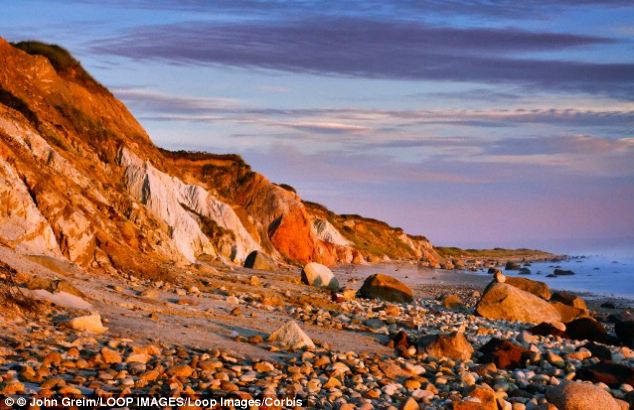
In Abrahamic religions, Adam is said to have been made from of clay that God fashioned into the first man
HOW THE BIBLE SAYS LIFE BEGAN
Genesis 2:7: 'And the Lord God formed man [of] the dust of the ground, and breathed into his nostrils the breath of life; and man became a living soul.'
Isaiah 64:8: 'But now, O Lord, you are our Father; we are the clay, and you are our potter; we are all the work of your hand
.'
By Daily Mail Reporter
PUBLISHED: 17:10, 6 November 2013 | UPDATED: 20:08, 6 November 2013
Was the Bible RIGHT about the origins of life? Scientists believe that we may have had our beginnings in CLAY
The Bible, the Koran and even Greek mythology has suggested for thousands of years that life began as earth, dust or clay
New theory is that clay is a breeding ground for chemicals which it 'absorbs like a sponge' and eventually leads to proteins and DNA forming.
All life on Earth may have come from clay according to new scientific research - just as the Bible, Koran and even Greek mythology have been suggesting for thousands of years.
The latest theory is that clay - which is at its most basic, a combination of minerals in the ground - acts as a breeding laboratory for tiny molecules and chemicals which it 'absorbs like a sponge'.
The process takes billions of years, during which the chemicals react to each other to form proteins, DNA and, eventually, living cells, scientists told the journal Scientific Reports.
Biological Engineers from Cornell University's department for Nanoscale Science in New York state believe clay 'might have been the birthplace of life on Earth'.
It is a theory dating back thousands of years in many cultures, though perhaps not using the same scientific explanation.
In religious texts from ancient Egypt to Chinese legends, God moulds clay into the shape of man and then breathes life into him through his nostrils.
Even Genesis talks of man being born from dust and returning to dust when he dies, with scholars translating this from the ancient Hebrew as also meaning clay or the earth itself.

in seawater, clay forms a hydrogel - a mass of tiny spaces which soak up other minerals, chemicals and tiny molecules from its surrounding area.
Professor Dan Luo of Cornell said: 'In early geological history clay hydrogel provided a confinement function for biomolecules and biochemical reactions.
Over billions of years, chemicals confined in those spaces could have carried out the complex reactions that formed proteins, DNA and eventually all the machinery that makes a living cell work.'
The conclusions are based on experiments by the researchers using synthetic hydrogels, adding DNA, amino acids and enzymes and simulating the production of proteins.
While it may be one theory on the creation of life on Earth, it may also have modern and moneysaving applications for drug manufacturing.
The report added: 'Why consider clay? It's dirt cheap. Better yet, it turned out unexpectedly
that using clay enhanced protein production.'